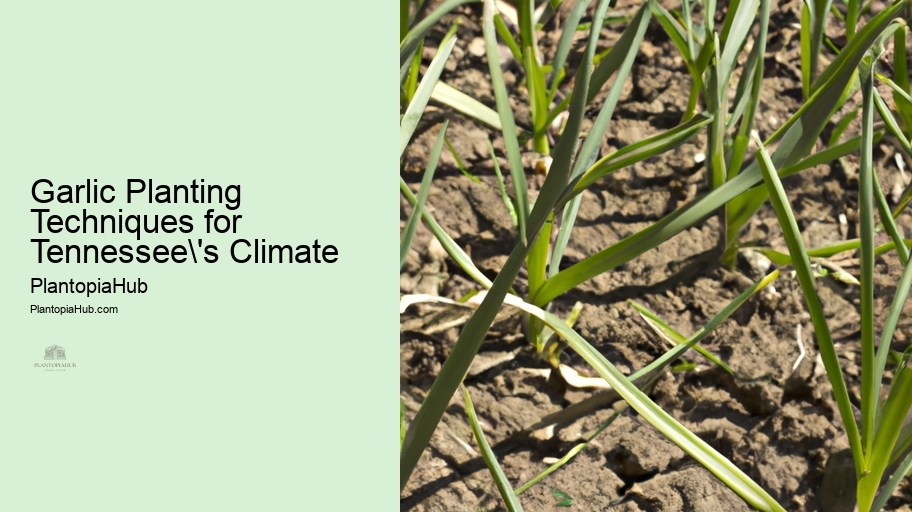

Hosting garlic braiding workshops can be a fun and educational addition to your Tennessee garlic farm. Invite participants to learn the art of garlic braiding, a traditional skill that adds value to garlic bulbs.
Share techniques for creating beautiful garlic braids, and allow attendees to take home their creations.
In conclusion, offering garlic braiding workshops is a unique way to engage with your local community and promote your garlic farm in Tennessee.
Share seasonal garlic recipes tailored to Tennessee's climate on your farm's website or social media. Offer cooking tips and ideas for using fresh garlic in dishes that align with the state's seasonal produce.
Highlight the versatility of garlic and its ability to enhance the flavors of locally sourced ingredients.
In conclusion, providing seasonal garlic recipes can inspire Tennessee residents to incorporate this flavorful ingredient into their cooking, supporting your farm's products.
Soil testing is a crucial step in preparing your Tennessee garlic plantation. Conduct a soil test to determine pH levels and nutrient deficiencies. Local Food Systems Based on the results, amend your soil with organic matter like compost or well-rotted manure to optimize garlic growth.
Regular soil testing and amendments help maintain soil health and fertility, ensuring robust garlic crops year after year.
In conclusion, soil testing and proper amendments are essential for successful garlic plantation in Tennessee, providing the foundation for healthy garlic growth.
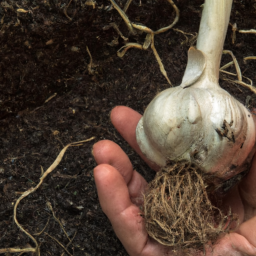
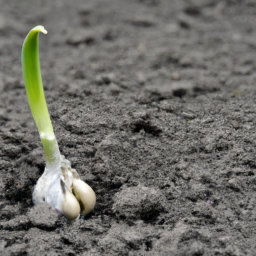
Efficient irrigation systems are essential for conserving water in Tennessee garlic farming. Drip irrigation or soaker hoses deliver water directly to the root zone, reducing water wastage and minimizing moisture-related diseases.
Monitor soil moisture levels and adjust your irrigation schedule accordingly, especially during hot and dry periods.
In conclusion, adopting efficient irrigation systems is a sustainable approach to water management in Tennessee garlic farming, promoting both plant health and environmental conservation.
Garlic can serve as an excellent companion plant in your Tennessee garden. Plant garlic near susceptible crops to deter pests like aphids and nematodes. Its pungent odor and natural compounds act as a natural repellent.
Companion planting with garlic can improve the overall health and yield of neighboring plants, creating a harmonious garden ecosystem.
In conclusion, understanding the benefits of garlic as a companion plant can enhance the success of your Tennessee garden while reducing the need for chemical pesticides.
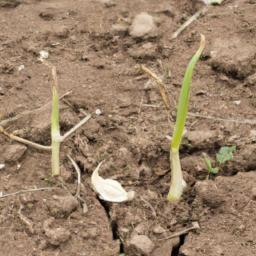
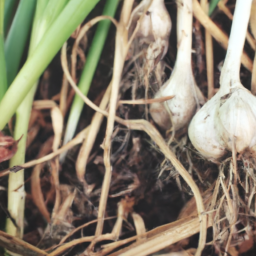
Understanding the science behind garlic growth cycles is essential for successful cultivation in Tennessee. Garlic goes through several distinct phases, from planting and sprouting to bulb formation and dormancy.
By knowing the science behind these growth stages, you can make informed decisions about timing, care, and harvesting, resulting in healthier garlic crops.
In conclusion, delving into the science of garlic growth cycles is a valuable tool for Tennessee garlic farmers, ensuring optimal timing and care throughout the growing season.
In Tennessee, selecting garlic varieties resistant to common pests can save you time and effort in pest management. Varieties like "Purple Glazer" and "German White" exhibit natural resistance to certain pests and diseases.
By choosing pest-resistant garlic varieties, you can reduce the need for chemical interventions and promote a healthier garlic crop.
In conclusion, opting for pest-resistant garlic varieties is a smart strategy for Tennessee farmers looking to minimize the impact of pests on their garlic crops.
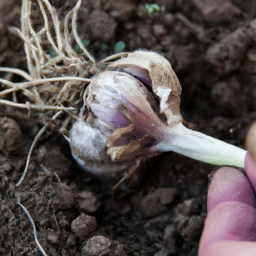
To protect your garlic crop from winter frost in Tennessee, consider applying a thick layer of mulch, such as straw or leaves, around your garlic plants in late fall. This mulch acts as insulation, preventing the soil from freezing and safeguarding the garlic bulbs. In extremely cold regions, you can also use row covers or cloches to provide additional frost protection. Be sure to maintain proper airflow to avoid condensation, which can lead to mold and rot.
Organic garlic farming in Tennessee offers several benefits. It promotes soil health, reduces chemical inputs, and produces garlic that meets high organic standards, appealing to health-conscious consumers. Organic practices also contribute to environmental sustainability by minimizing the impact on ecosystems. Furthermore, the demand for organic garlic continues to grow, making it a profitable venture for farmers who embrace these practices.
The optimal time for planting garlic in Tennessee typically falls between late September and early November. It's important to consider your specific location within the state, as warmer regions may benefit from earlier planting in September, while cooler areas may choose a late October start. Monitoring local temperature trends and referring to the USDA hardiness zone map for Tennessee can help determine the best planting window.